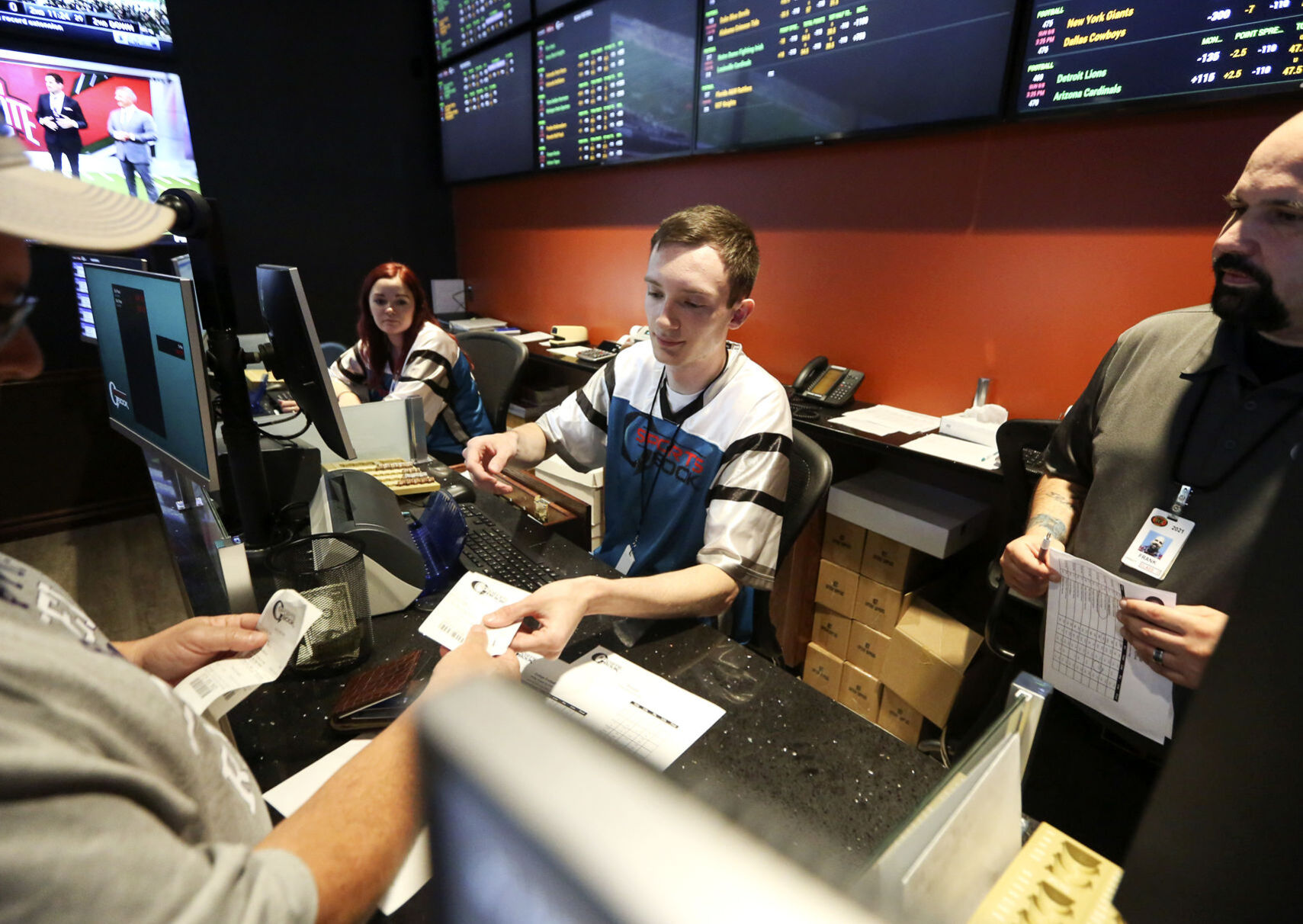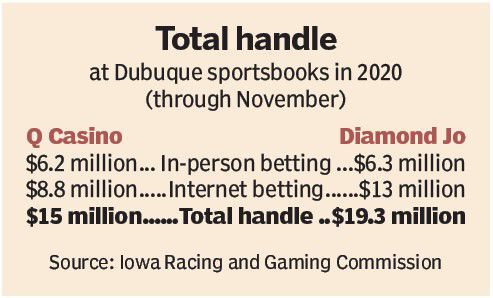The expiration of a key provision in Iowa’s gambling laws quite literally places sports betting at the fingertips of state residents.
As of Jan. 1, residents no longer are required to visit a state casino prior to utilizing online and mobile sports betting platforms. Iowa Racing and Gaming Commission Administrator Brian Ohorilko said the in-person requirement — part of the initial bill that legalized sports gambling in the state — sunset at the end of 2020.
Ohorilko believes that lifting the mandate will allow sportsbooks to reach a broader audience, rather than just focusing on those within driving distance. The end of the in-person requirement also has compelled new companies to dive into the state’s online sports gambling market.
Ohorilko said there are eight online sports wagering companies operating in Iowa, but a dozen more recently expressed interest or reached tentative agreements with casinos. That phenomenon was on display Monday, when New Jersey-based BetMGM and Diamond Jo Casino announced a partnership for a new sports betting app.
“The market will become very competitive very quickly,” Ohorilko said. “I think we are really going to see (sports gambling) expand.”
When Diamond Jo and Q Casino and Hotel initially opened sportsbooks, they offered only a physical betting location within their facilities. Their mobile and online platforms arrived months later but now drive nearly two-thirds of sports betting activity.
Through the first 11 months of 2020, more than $34 million was wagered through the two sportsbooks in Dubuque. About $21.8 million of that was wagered virtually. Figures for December have not been released yet.
Diamond Jo, which partnered with FanDuel to create its sportsbook, generated about $13 million in online bets through November, despite the fact that it didn’t launch its mobile app until September. Q Sportsbook, which launched its app in 2019, reported $8.8 million in online bets through the first 11 months of the year.
STATE OF GROWTH
The first Iowa sportsbook opened on Aug. 15. 2019, about three months after Gov. Kim Reynolds signed a bill establishing a legal way to bet on professional, collegiate and international sports.
Dubuque casinos were quick to tap into the new market. Q Sportsbook opened later that month, and FanDuel Sportsbook launched within Diamond Jo on the first day of September. In four months in 2019, the two sportsbooks collectively accepted about $9.5 million in wagers.
They are poised to bring in total wagers of more than $40 million this year despite the COVID-19 pandemic, which shut down professional and college sports for months.
Local leaders believe the future is bright
“I am optimistic,” said Brian Rakestraw, the general manager for Q Casino and Hotel. “This should be more of a normal year for sports, and I think the betting industry will do better in 2021 than we did in 2020.”
Rakestraw said Q Sportsbook is developing a new mobile app, which will include the necessary features for online registration, as well as promotional offerings that will help Q Sportsbook compete in an increasingly competitive market.
Kevin Hennessy, a spokesman for FanDuel Sportsbook, believes the Iowa sports betting market is not only growing but also maturing.
“Iowa now has a great retail sports betting infrastructure and a mobile sports betting marketplace that offers choice, innovation and customer service for Iowa customers to embrace in 2021,” he said via email.
GAMBLING CONCERNS
To some, the ongoing growth of the sports gambling industry isn’t a cause for celebration.
Mary Boots, prevention supervisor at Substance Abuse Services Center, of Dubuque, believes the rollout of online sports betting has created a new temptation for those with gambling problems. Eliminating the in-person registration requirement has made for even easier access.
“(Sports betting) is always accessible, even when you are sitting at home or working from the office,” Boots said. “If you have your laptop or smartphone, you can place a bet at any point of the day. You don’t have to live near a casino anymore.”
Boots also expressed concern that virtual options would make it easier for individuals younger than the legal betting age of 21 to place wagers.
Ohorilko, however, emphasized that safeguards are in place.
He said customers must provide information such as their date of birth, Social Security number and address to register online. This information then is screened through a database to ensure underage applicants cannot get an account.
Procedures are also in place to ensure problem gamblers are properly screened. Those who previously added their names to the state’s self-exclusion list — which denies participating individuals entrance to state casinos — will be flagged when they attempt to register for online sports betting.
Iowans establishing online betting accounts also can place limits on how much they can wager in a given timeframe, as well as how much they can deposit into their account.
“There is always a small percentage of people susceptible to gambling too much,” Ohorilko said. “It is nice to know that, with the online betting, there are additional controls that have never been an option in a physical environment.”




